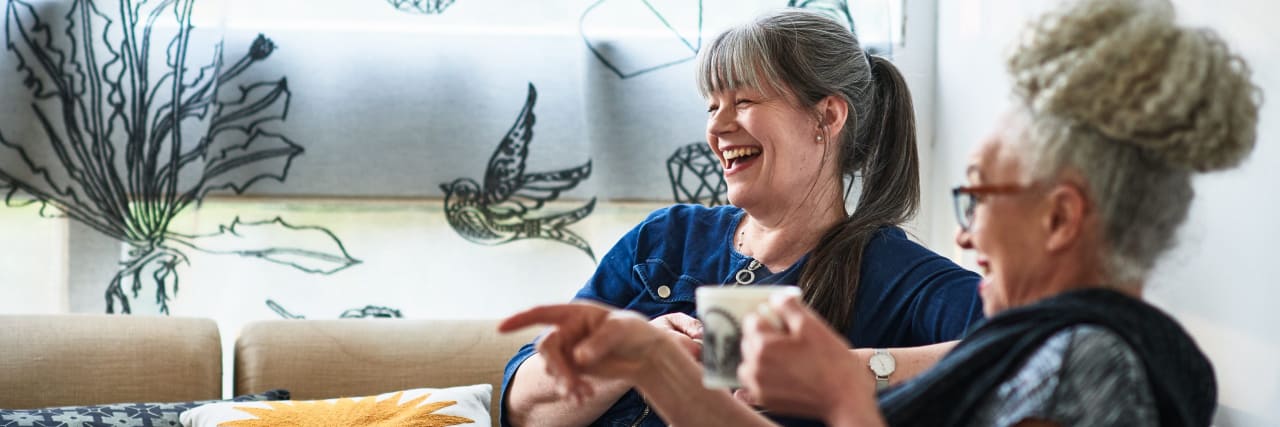How I'm Living My Best Life With My Alzheimer's Disease Diagnosis
My mom and grandma had Alzheimer’s disease. I knew it was a possibility that I could have Alzheimer’s disease too — but then again, maybe I wouldn’t.
I started having memory loss symptoms in my 40s, but I chalked them up to the small strokes I had previously had. My other symptoms from the strokes improved, so there was no reason to suspect my memory wouldn’t improve too. In my mid-50s, though, my memory loss continued getting more severe. I didn’t have time to worry about myself, though, because I was busy taking care of my mom.
A few years after Mom died, I was buying a new refrigerator when I went to fill out a check — but couldn’t figure out how to. I felt so embarrassed as the salesman watched me struggle. He helped me by telling me what to write, but I still had a hard time. I told him to fill it out, and I would initial it to give my approval. That’s when I decided it was time to see a doctor about my memory.
A few weeks after a long test, I received my diagnosis: Alzheimer’s disease. I originally told my husband not to go with me to the doctor’s appointment because I thought my challenges would just be because of something else. I went calmly to the doctor, but she told me my symptoms were more than likely Alzheimer’s disease. As I sat stunned, she proceeded to tell me to get my affairs in order. I was only 60 years old.
It has been four years since then, and I still live my best life. My “best” is a little different than it was four years ago, but I’m still enjoying life. My husband helps me with things like paying bills, taking medications, cooking, and watching the grandchildren. Yes, I may have declined in the last few years, but I have also picked up new activities and new friends even though I’ve lost friends too. I go to lunch with friends, to the gym, play pickleball, go to drum circles with my djembe drum, mow our five acres of land, take care of the house, and help get the grandchildren up, dressed, fed, and out the door every morning. My memory doctor’s office has a strong support team and activities too. I participate in an art class, a music program, and a support group. I also wear a medicine patch that helps bring clarity to my life.
My Alzheimer’s disease diagnosis may have been devastating, but it’s not the end. To help support others with a dementia diagnosis, I have started a Mighty group called Living With Alzheimer’s. If you’re living with dementia, remember that we can all support one another!
Getty image by 10’000 Hours.

